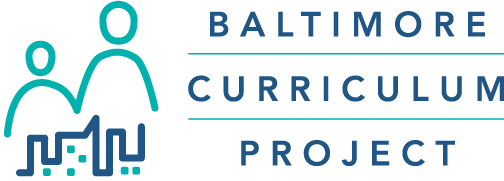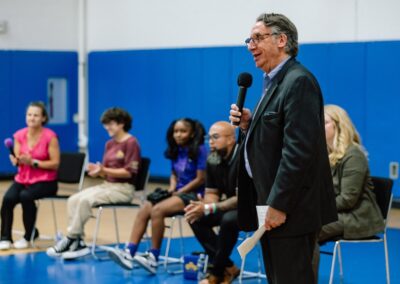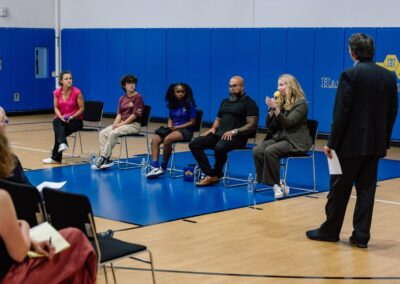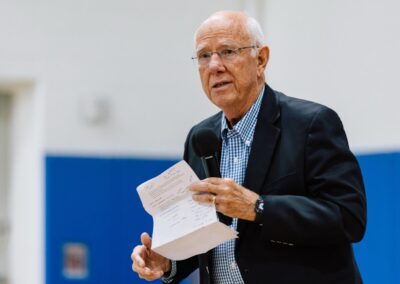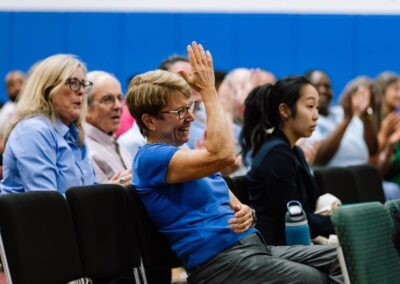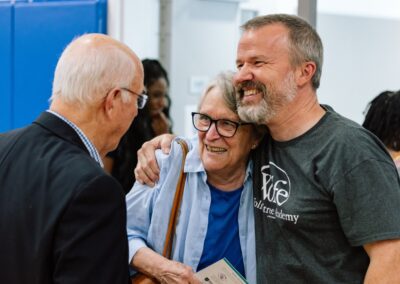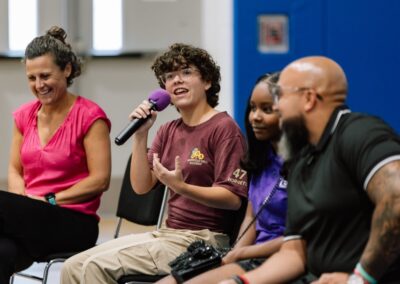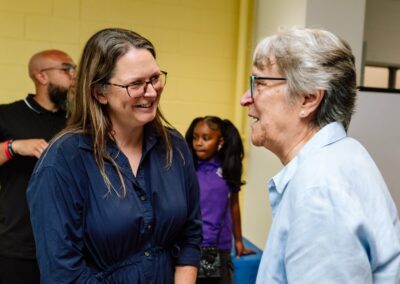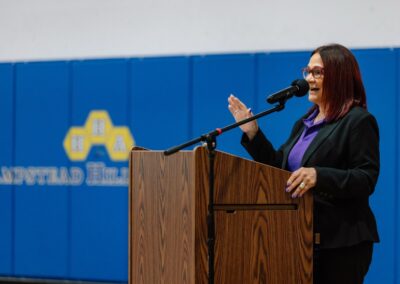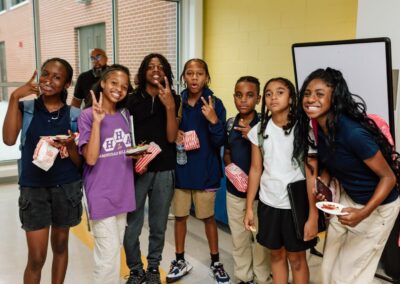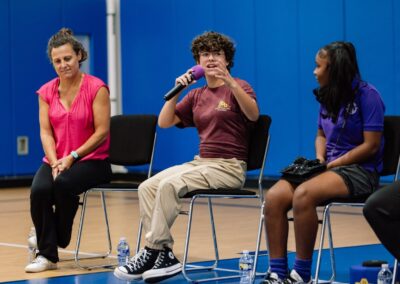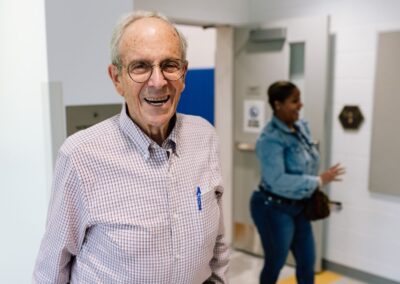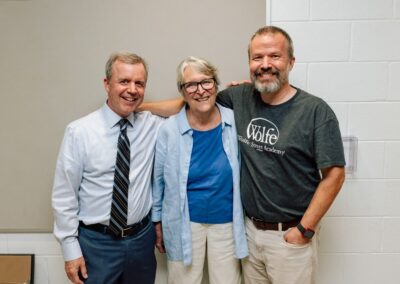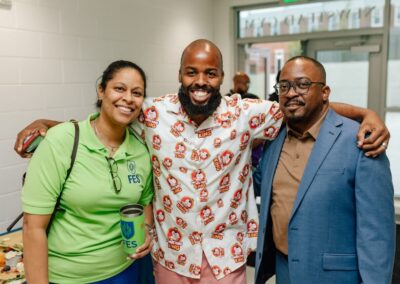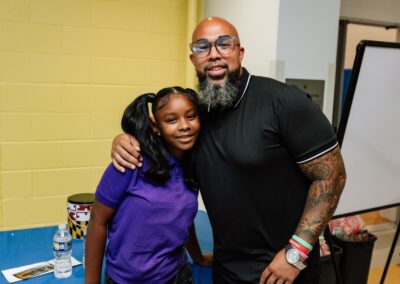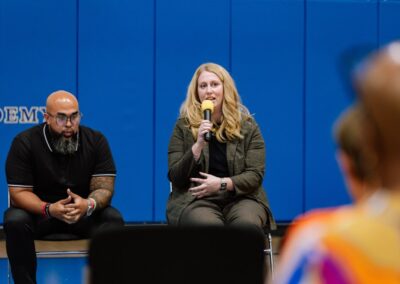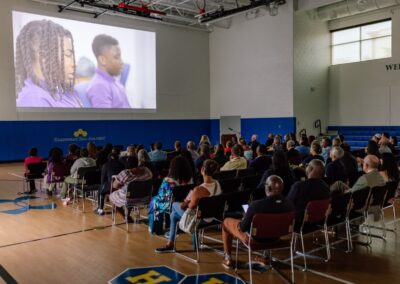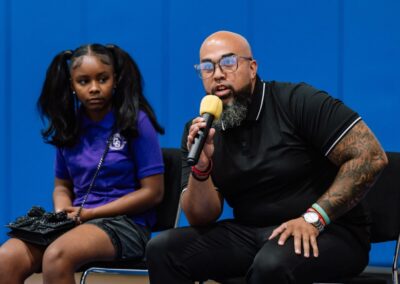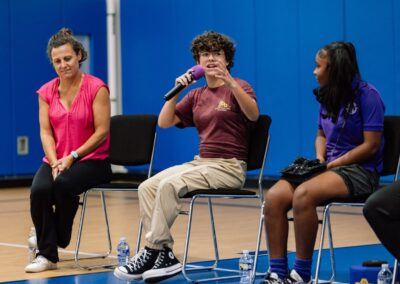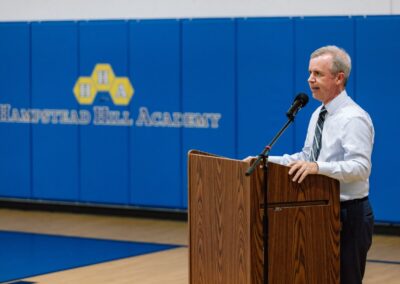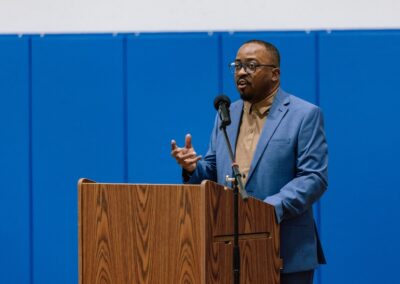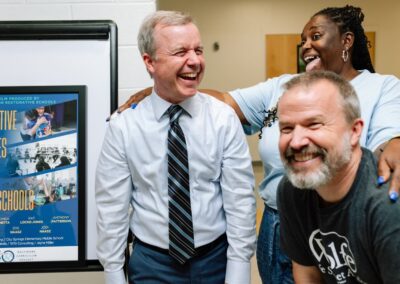September 29, 2025, in Hampstead Hill Academy’s Newstead Gym, Baltimore Curriculum Project (BCP) kicked off its 30th year celebration with another “first”—its first-ever film premiere.
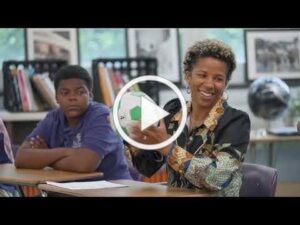 Restorative Practices Make Strong Schools, the short documentary created by Voices for Restorative Schools, tells the story of Restorative Practices, which has been championed by BCP since 2005 when Dr. Rhonda Richetta, Principal at City Springs Elementary / Middle School, introduced the concept and practice to BCP, Baltimore City Public Schools, and Maryland. City Springs is the first school in Maryland to use Restorative Practices.
Restorative Practices Make Strong Schools, the short documentary created by Voices for Restorative Schools, tells the story of Restorative Practices, which has been championed by BCP since 2005 when Dr. Rhonda Richetta, Principal at City Springs Elementary / Middle School, introduced the concept and practice to BCP, Baltimore City Public Schools, and Maryland. City Springs is the first school in Maryland to use Restorative Practices.
The premiere included students, BCP alumni, teachers, parents, principals, and BCP and City Schools leaders. Following the event, Larry Simmons, Jr., Baltimore City Schools’ School Board Commissioner, shared with BCP how “inspiring [it was] to see the collective commitment to restorative practices and to celebrate BCP’s 30th Anniversary. The film [is] powerful and [sparks] many important reflections about the work happening in our city’s schools.”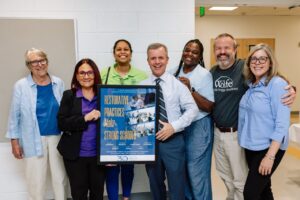
Dr. Richetta, Matt Hornbeck, Principal at Hampstead Hill, students, and teachers are featured in the film, which is narrated by Maryland news legend, Jayne Miller.
In his welcoming remarks, Harold S. Henry, Jr., BCP Chief of Schools, lauded another Restorative Practices pioneer in the audience: Dr. Muriel Berkeley, BCP founder. “Dr. Berkeley was also instrumental in getting Restorative Practices to be used throughout schools in the district … Today, it’s a core component in all six of our schools, helping us to build strong, respectful relationships, address conflict and constructive ways, and create safe, inclusive school communities. This work is not just a program. It’s a part of who we are at BCP.” David Hornbeck (right) with his son Matt Hornbeck, HHA Principal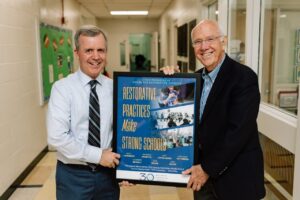
David Hornbeck, former State Superintendent of the Maryland State Department of Education, shared with the crowd the genesis of Voices for Restorative Schools. One of the architects of the Blueprint for Maryland’s future, he explained that while he believes it is “the best education law that’s been passed in this country in the last 50 years,” he said that they “made a mistake.” The law provided for community schools across the state and made Maryland the first state in the nation to guarantee every low-income 3-year-old a place in pre-kindergarten. “But we didn’t say a word in the Blueprint about school culture,” Mr. Hornbeck said. “Everybody knows that culture is the determinative factor in any institution. I had been hearing about this thing called Restorative Practices, and as the video said, this ought to be a reality in all 1400 schools in Maryland, not just in a handful of schools.”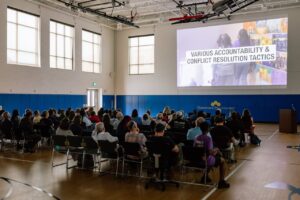
Learn more about Voices for Restorative Schools and how you can be involved in the movement to make these culture-changing, life-skills-creating practices a reality in every Maryland public school.
Film Premiere Panel, Moderated by Tom Hall, Host of Maryland Midday, WJZ-TV
After the screening of the film, BCP hosted a panel of students, a parent, and educators to talk about the impact of Restorative Practices in their lives:
- Cashmir Beverly, a 7th grader at City Springs
- Kat Locke-Jones, Hampstead Hill ELA Middle School teacher and 2024 Maryland Teacher of the Year
- Zoe Naasz, an 8th grader at Hampstead Hill Academy and Peer Mediator
- Jodi Naasz, Hampstead Hill parent
- Anthony Patterson, Director of Restorative Practices at City Springs
Below are excerpts from their panel:
Zoe: Restorative Practices is a range of programs, events, and things that you could do at schools, but anywhere where you can help kids, adults, and people be themselves, feel welcome, express themselves, and get to know everyone. It’s a way to be a community.
Mr. Patterson: Restorative Practices allow me to be able to get through a lesson much easier, quicker, and faster because the climate, culture, and relationships are there. We’re not teaching robots. Kids are human and go through real things and emotions. The restorative process helps you connect to them, and they to you. Once you have that trust, everything can then just move a lot quicker from there.
Ms. Locke Jones: We hear a lot of buzzwords in education, and one of the buzzwords is a safe space. But that’s really the bare minimum for students. For our classrooms to be a safe space, we want our classrooms to be brave spaces. Students don’t drop their mental health backpacks at our door before they come in. They bring their hopes, fears, dreams, and anxieties with them. Restorative circles and practices allow that … If we want our students to have courageous conversations outside the classroom, then we need to model those courageous conversations inside the classroom. Part of that is being vulnerable with your students. And that vulnerability allows students to tell their stories and give them the space to do that.
Cashmir: I have a school group chat and other group chats with other friends [outside of City Springs). Sometimes my friends might get angry over what another friend has said. [On the chat] I tell them what we are learning at school through Restorative Practices and a class we have called Leader in Me that teaches us how to be a leader and how to put our emotions to the side and put first things first. Sometimes my friends [on the chat] take it and sometimes they don’t. But I try to help the best way I can.
Jodi: I am also a schoolteacher and have gone through training for restorative practices. I found it very reflective as a parent for communication styles and reactions. It allows me to see how it shows up for me at home as a parent of three [all at Hampstead Hill]. It’s awesome to watch how they interact and resolve conflict and how respectful they are to each other and to us.
